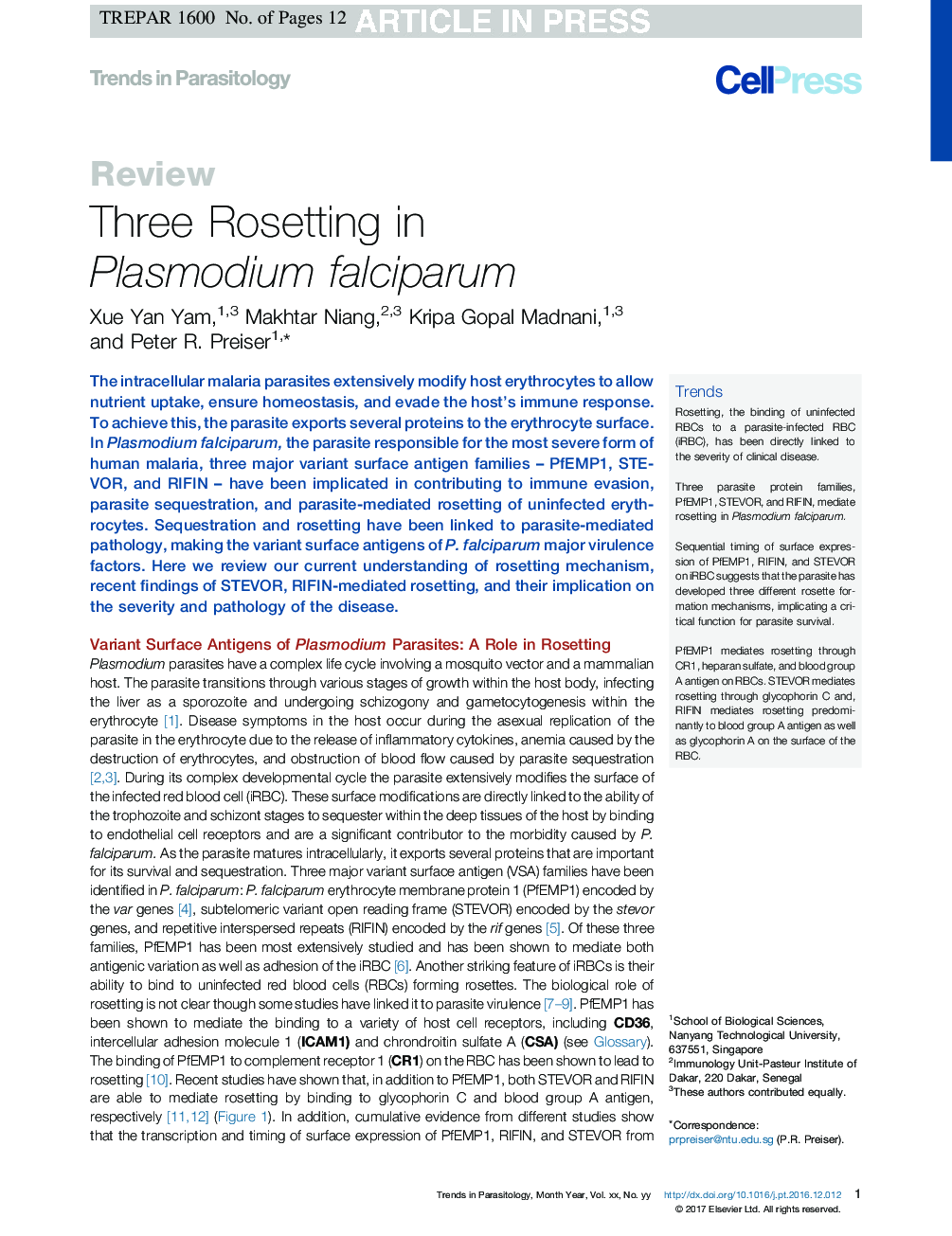| Article ID | Journal | Published Year | Pages | File Type |
|---|---|---|---|---|
| 5674745 | Trends in Parasitology | 2017 | 12 Pages |
Abstract
The intracellular malaria parasites extensively modify host erythrocytes to allow nutrient uptake, ensure homeostasis, and evade the host's immune response. To achieve this, the parasite exports several proteins to the erythrocyte surface. In Plasmodium falciparum, the parasite responsible for the most severe form of human malaria, three major variant surface antigen families - PfEMP1, STEVOR, and RIFIN - have been implicated in contributing to immune evasion, parasite sequestration, and parasite-mediated rosetting of uninfected erythrocytes. Sequestration and rosetting have been linked to parasite-mediated pathology, making the variant surface antigens of P. falciparum major virulence factors. Here we review our current understanding of rosetting mechanism, recent findings of STEVOR, RIFIN-mediated rosetting, and their implication on the severity and pathology of the disease.
Keywords
Related Topics
Life Sciences
Immunology and Microbiology
Parasitology
Authors
Xue Yan Yam, Makhtar Niang, Kripa Gopal Madnani, Peter R. Preiser,
